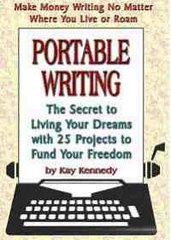HOW TO FIND THE RIGHT WORD
How do you find the right word that means exactly what you want to say? It’s easy! Just pick up a thesaurus and look up the word you’ve used. You should find several words that mean the same thing, or almost.
Most new writers think they’re supposed to know all about writing and shouldn’t need help with grammar, spelling or finding a synonym. However, that’s just not true. Most writers, no matter how long they’ve been at it, have problems. It is impossible to keep every rule and word available in your mental filing cabinet. Oh, it may be there, but it may take awhile to access it.
So why obsess about it? You can quickly find the best word to use in your thesaurus. You’ll save time and increase your profits by doing this quickly instead of sitting and racking your brain for the right word.
I once worked for a magazine that insisted their writers and editors use a thesaurus. It didn’t take long to find out why. They wanted us to be able to say cute, sweet and precious in as many ways as possible. That’s the kind of magazine it was. And we had to include these words many times in each issue. I finally got to where I thought I would gag if I ever had to say those words in any form again. But I could see why it was done, so I quickly learned to rely on the thesaurus.
All writers find that sometimes it’s necessary to use the same word over and over again throughout an article. I used to write a lot of business articles, and it was important not to use the word business over and over again. It doesn’t look professional, and it’s boring. So I used enterprise, industry, and all the other words I could find that meant essentially the same thing. For business man or woman, I could use entrepreneur if I was talking about the owner. There is a limit to words that work, but simply replacing business a few times helped make the articles more interesting.
Learn what tools work best for you and use them. Don’t forget the dictionary, too. You may think you know how to spell a word, but if you don’t use it regularly, you might have forgotten. Or you might not remember its exact meaning.
We have a general dumbing down of American, as you can see by watching any network news program any day as supposedly smart people use the wrong word or pronunciation. It tends to make us all sloppy and lazy. After all, if these people can’t say it right, who is going to know that we haven’t, either? Your editor, that’s who!
There are lots of rules that we’ve all forgotten if we haven’t been in school for awhile, so it’s important to always remember that anyone can make a simple mistake. Any of us. Sometimes I make really stupid mistakes. Hopefully, I catch them every time before they’re published, but realistically I know some may slip through. I’ll misspell a simple word that I definitely know, but if I’m in a hurry, I may make a typo. Or, I hate to admit this but I might simply not be thinking.
Don’t obsess about mistakes. Use your spell and grammar checker on the computer to check your work. If you question this tool’s suggestion, don’t use it automatically. I’ve found that they are not always right! If one comes up, look again at your word to make sure you haven’t made a typo, such as three letters in a row instead of two, or something else that isn’t easily spotted. If it looks okay, then look the word up in your dictionary. It may be the low-tech, old-fashioned way, but this remains your most trusty tool.
Sunday, November 19, 2006
Subscribe to:
Post Comments (Atom)


No comments:
Post a Comment